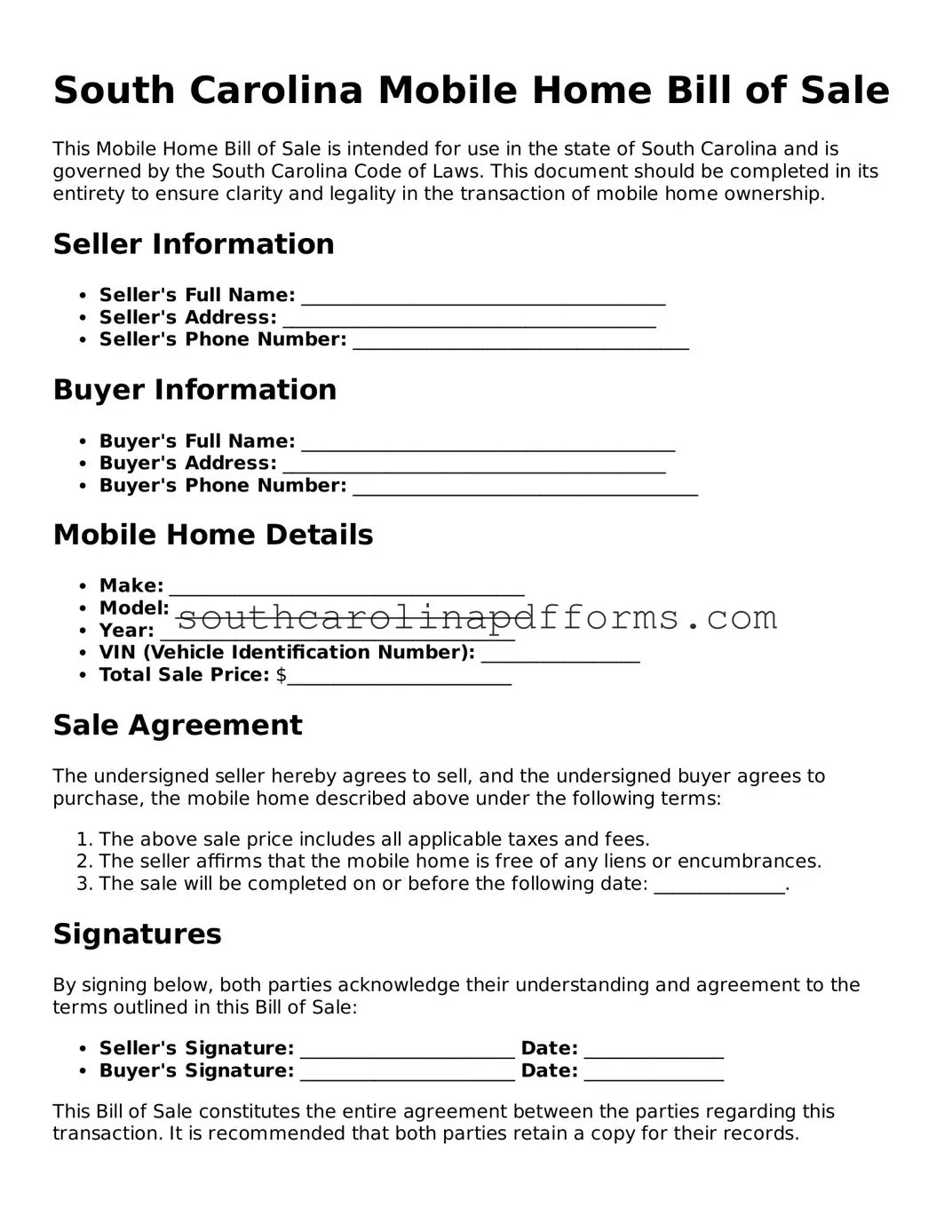Attorney-Approved South Carolina Mobile Home Bill of Sale Document
The South Carolina Mobile Home Bill of Sale is a legal document that facilitates the transfer of ownership of a mobile home from one party to another. This form outlines essential details such as the buyer's and seller's information, the mobile home's description, and the sale price. Understanding this form is crucial for ensuring a smooth transaction and protecting both parties' rights.
Access Mobile Home Bill of Sale Here
